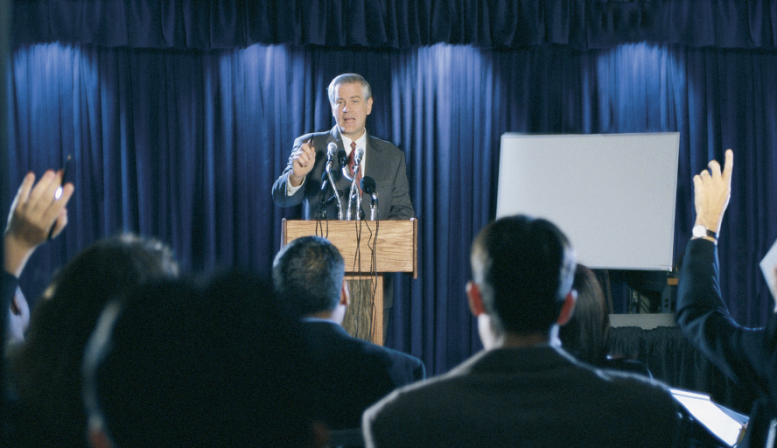4 Tips for Writing an Engaging Speech

If you were asked to name a memorable speech off the top of your head, if you’re an American, there's a huge chance that Martin Luther King's "I have a dream" will come to mind. Over the years, many activists and speeches have come and gone, but this iconic speech still rings loudly in our ears.
You're probably thinking, what makes this one speech so powerful and memorable? Was it his speechwriter? His delivery?
Well, a major factor was the way Luther King included vivid and metaphorical language to touch the hearts of his listeners.
If you're reading this, you're probably trying to write a speech that will pique your audience and keep them from yawning while you're speaking. But how do you make a speech this powerful without having to hire a writing service?
Let's find out.
What Makes Speeches Memorable?
When it comes to writing formal speeches, it's important to ensure that you nail the content and delivery. This way, you can keep your audience hooked till the very end. However, this is easier said than done. Writing a speech that won't have your audience leaving or falling asleep mid-way through is a skill that you’ll need to master if you are to write your own speech.
Fortunately, we've compiled some tips that can help you write an engaging speech. Here they are:
1. Have a solid structure
A common problem with speeches that don’t grab the audience’s attention is lack of focus. A speaker might start off on a great path that grabs the interest of the audience. But at some point they drift into only partially related, or even unrelated, topics.
This type of speech is a sure recipe for disaster because at the end of the day, you'll leave your audience confused or bored, or both.
Most audiences want only two things from your speech: a clear path and a destination. They want to know where you're going with your speech and why you're heading down that path.
So try to ensure your speech has a clear structure that you don't veer away from. You can start by dividing it into three sections: introduction, body, and conclusion. Create clear points for each section and cut out anything that doesn't contribute to the core message of your speech.
2. You have only one chance at an opening. Get it right.
The first minute of a speech holds so much potential. During this phase, you can catch your audience's attention and get them interested in whatever it is you have to say. Unfortunately, most motivational speakers tend to use this crucial moment for mundane things like thanking the hosts or trying to get comfortable on stage. These are great things to do no doubt, but while you're doing them, your audience is gradually losing interest.
When crafting your speech, don't hold back on the introduction. Swing in with a funny story, fun facts or statistics, depending on your audience. You could, for instance, start off by asking your audience a question. This way, you can keep your listeners engaged early and keep their minds from wandering off.
3. Be memorable
Famous speakers get that way by delivering memorable speeches. Earlier, we talked about Martin Luther King's famous speech and what made it so memorable. If you're trying to write a speech that will leave a lasting impression on your audience, you'll need to use rhetorical devices such as metaphors, alliterations, imagery, and so on.
For instance, in President Reagan's State of the Union address, he referred to America as "a shining city on the hill", evoking images of gleaming promise in the minds of his audience.
The bottom line is: use rhetorical devices to make your speech memorable and impressive. Will it be as great as Martin Luther King's speech? Well, you'll never know unless you try.
4. Use theatrics
Here's a thing: words alone can convey your message, but can they convey it in an impressive way? When it comes to writing and delivering a speech, using theatrics, such as visuals or props, can help to make your speech more powerful and catchy.
For instance, you could try using colorful graphics, slides, videos, or illustrations to get your message across. At the end of the day, you'll have achieved two objectives: you’ll have made your point and left a lasting impression.
Final Thoughts
Writing an engaging speech is no easy task, even if you're the most experienced speaker in the world. However, with these tips, you can write an influential speech that will captivate your audience and make them want to hear you speak again.







